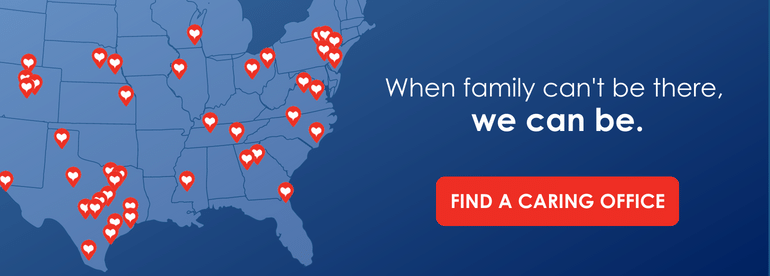Caring for elderly loved ones is a responsibility that many of us undertake with love and devotion. However, it also comes with challenges, like knowing when to call 911 in an emergency.
Aging causes many health issues, and it can be difficult to know if a health challenges indicates a medical emergency. However, this decision could be life or death for aging family members. Below are specific situations when you should not hesitate to call 911.
Chest Pain or Difficulty Breathing
One of the most critical situations is when your elderly loved one experiences chest pain or difficult breathing. These symptoms can indicate heart attack or a serious respiratory issue. These are life-threatening situations that warrant calling 911 as soon as possible . While it's normal for seniors to have occasional discomfort, do not take severe chest pain lightly.
Unconsciousness or Altered Mental State
Any sudden change in mental state, such as confusion, disorientation, or loss of consciousness, should be a red flag. It could be a sign of a stroke, seizure, or other neurological issues. In such cases, make that emergency call to ensure your loved one receives the necessary medical care as soon as possible.
Severe Bleeding or Injury
Accidents can happen, and when they do, it's crucial to assess the severity of the injury. Call 911 if your elderly family member experiences severe bleeding that doesn't stop with pressure. Also call if they have sustained a serious injury. It's best to let medical professionals handle these serious situations to prevent further complications.
Signs of a Stroke
If you suspect a stroke, dial 911 immediately. Timely intervention can significantly improve the chances of recovery. The FAST acronym is a helpful tool to remember the signs of a stroke:
- F: Face drooping (ask the person to smile, and see if one side of their face sags)
- A: Arm weakness (ask the person to raise both arms, and check if one arm drifts downward)
- S: Speech difficulty (listen for slurred speech or difficulty in speaking)
- T: Time to call 911 (if any of these signs are present, don't hesitate; call 911 immediately)
Learn more about identifying signs of a stroke.
Severe Pain or Discomfort
Seniors may experience regular pain and discomfort. But when they get a sudden pain or an existing pain worsens, it can be a sign of a serious underlying condition. If your loved one experiences severe and unrelenting pain, it's safer to call 911 than manage it at home.
Shortness of Breath
Shortness of breath can indicate various issues, including heart problems, lung conditions, or even a panic attack. If your loved one experiences sudden and severe shortness of breath that doesn't improve with rest or inhalers (if applicable), seek immediate medical attention.
Falls & Fractures
Seniors are more susceptible to falls, which can result in fractures, head injuries, or other complications. After a fall, assess the situation. If there is an obvious injury, call 911. See if your loved one can get up or move.; if they are unable to, call 911.
Do not attempt to move them yourself because this could worsen their injuries.
RELATED CONTENT: What to Do When a Senior Falls
Seizures
Seizures can be frightening for both the person experiencing them and those around them. If a senior has a seizure that lasts longer than 5 minutes or has multiple seizures in a row, call 911. While waiting for help to arrive, make sure they are lying on their side to prevent choking on any fluids.
Allergic Reactions
If a loved one has a severe allergy, call 911 if they experience a severe allergic reaction. This could include symptoms like difficulty breathing, swelling of the face or throat, or a drop in blood pressure. Administer an epinephrine auto-injector (if prescribed) while waiting for paramedics to arrive.
Fire or Safety Concerns
If there is ever a fire in the home or suspicious activity outside the home, call the 911 system. Law enforcement officers can come check the home and neighborhood for suspicious persons or activity. And the fire department can be dispatched to put out fires.
Emergency situations can be scary, so it's best to be prepared for them ahead of time. When calling 911, remain calm and speak clearly so 911 operators can understand the situation. A calm tone can also help keep your loved one from becoming stressed or panicked about the situation.
Always trust your instincts. If you are not sure if a situation is an emergency, it's better to be cautious and make the call.


